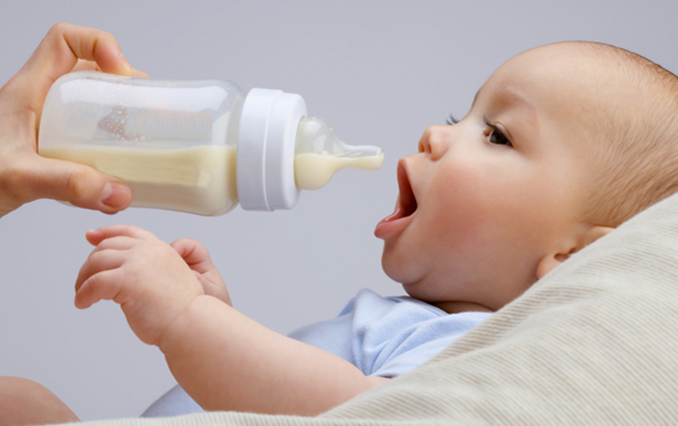Why Formula Feeding Is a Healthy Choice: Reassurance for Parents
Why Formula Feeding Is a Healthy Choice: Reassurance for Parents
Introduction
While breastfeeding is often highlighted as the ideal way to nourish a baby, there are many situations where breastfeeding may not be possible or preferred. For parents feeding their baby formula, it’s important to know that formula is a safe, healthy, and nutritionally complete option. In this blog, we’ll address common concerns about formula feeding, explain why you don’t need to worry, and highlight the benefits of formula for both parents and babies.
1. Why Formula Feeding Is a Safe and Healthy Option
Formula is designed to meet all of your baby’s nutritional needs and support healthy growth and development. Here’s why you can feel confident about formula feeding:
A. Nutritionally Complete
- Balanced Nutrition:
- Formula contains the essential nutrients your baby needs, including proteins, fats, vitamins, and minerals.
- Tailored Options:
- Specialized formulas are available for babies with specific needs, such as lactose intolerance or allergies.
B. Strict Safety Standards
- Formula is rigorously regulated to ensure safety and quality, making it a reliable feeding choice for your baby.
C. Supports Growth and Development
- Formula-fed babies grow and develop at the same healthy rate as breastfed babies when fed appropriately.
2. Common Concerns About Formula Feeding—and Why You Don’t Need to Worry
Parents often have concerns about formula feeding, but many of these worries are based on misconceptions. Let’s address some of the most common ones:
A. “Will My Baby Miss Out on Antibodies?”
- While formula doesn’t provide the same antibodies as breast milk, it does offer complete nutrition.
- Tip: Support your baby’s immune system by maintaining a healthy environment, ensuring vaccinations, and practicing good hygiene.
B. “Is Formula Feeding Less Bonding?”
- Feeding time is about connection, not the method of feeding.
- Tip: Make feeding a bonding experience by holding your baby close, making eye contact, and talking or singing during mealtime.
C. “Will My Baby Be Healthy?”
- Formula-fed babies are just as healthy as breastfed babies when given proper nutrition and care.
- Tip: Choose a high-quality formula that suits your baby’s needs and follow your pediatrician’s recommendations.
D. “Does Formula Cause Digestion Problems?”
- Modern formulas are designed to be easily digestible. Options like hydrolyzed or soy-based formulas are available for babies with sensitivities.
3. Benefits of Formula Feeding for Parents and Babies
Formula feeding offers unique advantages for both parents and babies:
A. Flexibility for Parents
- Shared Responsibilities:
- Formula feeding allows partners, family members, or caregivers to help with feedings, giving the primary caregiver time to rest.
- Easier Scheduling:
- Parents can create feeding schedules that suit their routine.
B. Independence
- Parents can feed their baby outside the home without needing to pump or breastfeed in public.
C. Confidence in Measuring Intake
- With formula feeding, you can track exactly how much milk your baby is consuming, offering reassurance about their nutritional intake.
D. Supports Moms Who Can’t Breastfeed
- For moms with medical conditions, low milk supply, or personal reasons for not breastfeeding, formula provides a stress-free alternative.
4. Tips for Successful Formula Feeding
To ensure a positive experience with formula feeding, follow these tips:
A. Choose the Right Formula
- Consult Your Pediatrician:
- Your doctor can recommend the best formula based on your baby’s specific needs.
- Types of Formula:
- Standard cow’s milk-based formulas.
- Specialized formulas for lactose intolerance, soy allergies, or reflux.
B. Practice Proper Hygiene
- Always sterilize bottles and nipples before use.
- Prepare formula according to the manufacturer’s instructions to ensure safety and correct nutrition.
C. Feed on Demand
- Watch for hunger cues like rooting or sucking on hands and feed your baby when they’re hungry, typically every 2–4 hours.
D. Create a Calm Feeding Environment
- Hold your baby close and ensure a quiet, comfortable space for feeding.
E. Monitor Your Baby’s Growth
- Keep track of your baby’s weight gain and development during pediatric checkups to ensure they’re thriving.
5. Why You Shouldn’t Feel Guilty About Formula Feeding
Choosing how to feed your baby is a personal decision, and there’s no need to feel guilty about formula feeding. Here’s why:
- Your Baby’s Needs Are Met:
- Formula provides all the nutrients your baby needs to grow and thrive.
- Happy Parents = Happy Baby:
- Stressing over breastfeeding can impact your well-being. Formula feeding allows you to focus on enjoying parenthood.
- Every Situation Is Unique:
- Whether it’s due to medical reasons, work schedules, or personal preferences, formula feeding is a valid and responsible choice.
6. When to Consult Your Pediatrician
If you’re formula feeding, consult your pediatrician if:
- Your baby shows signs of an allergic reaction (rash, diarrhea, or excessive crying).
- Your baby has difficulty digesting formula or seems fussy after feedings.
- You’re unsure about which formula is best for your baby’s needs.
7. Conclusion
Feeding your baby is about ensuring they receive the love, care, and nutrition they need to grow and thrive. Formula feeding is a safe, healthy, and reliable option that can meet your baby’s nutritional needs while providing flexibility for parents. Remember, the most important thing is that your baby is well-fed and cared for, no matter how you choose to feed them.
Call to Action
Are you formula feeding your baby? Share your experiences or tips in the comments below! For more parenting advice and baby care tips, follow this blog.




Comments